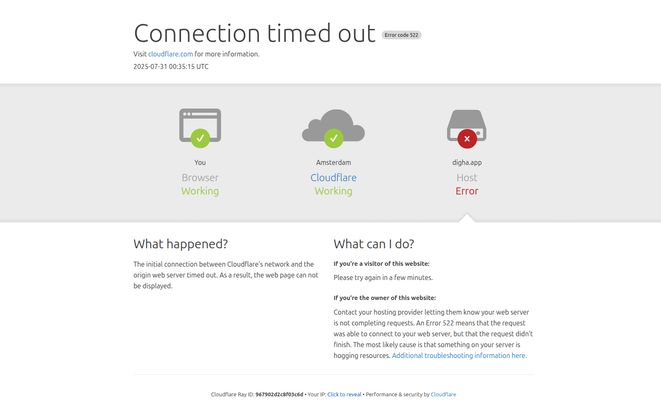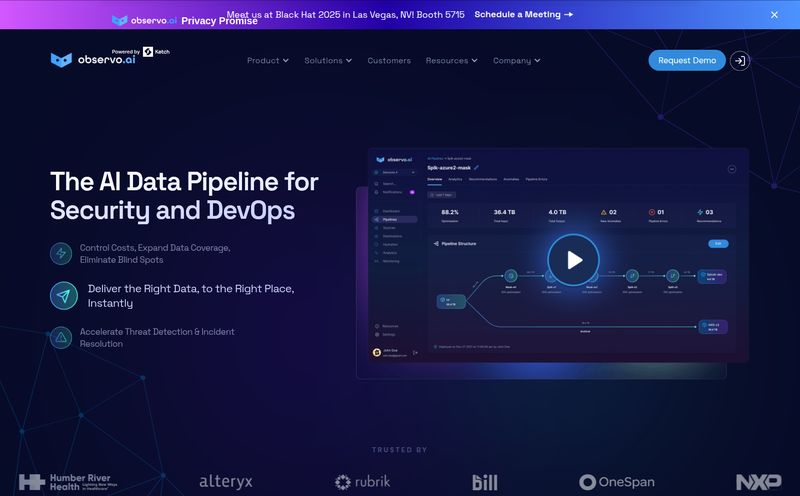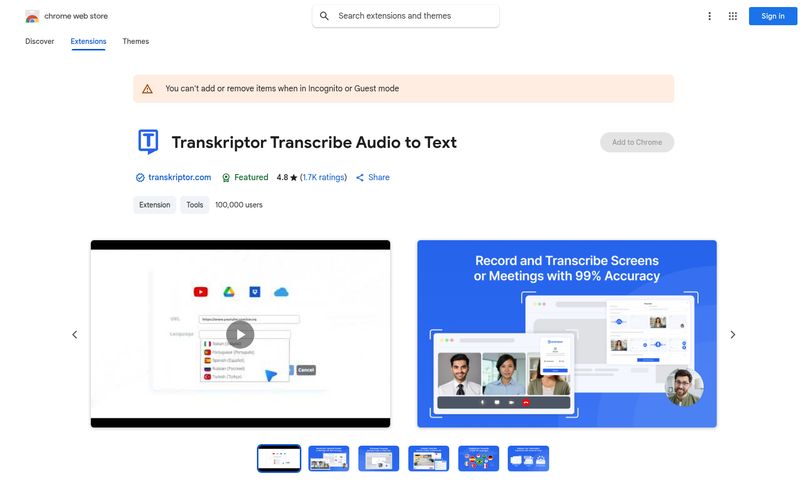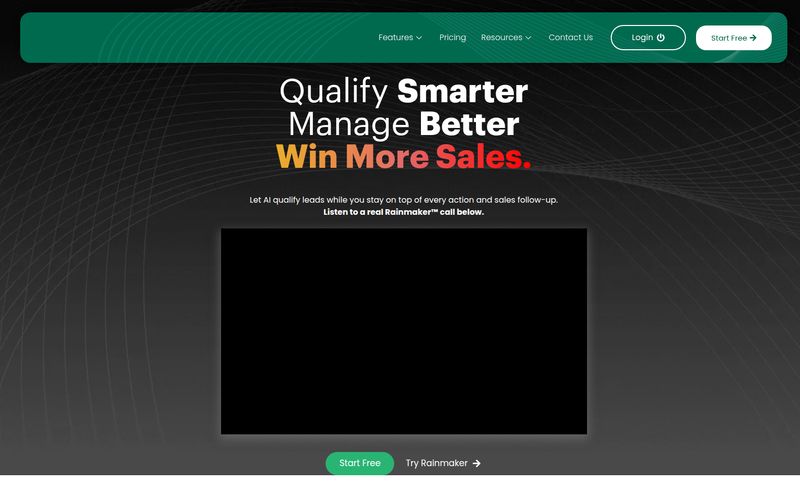In the world of SEO and digital platforms, you see a lot of tools come and go. Some are flashes in the pan, others become indispensable parts of our toolkit. Every so often, something pops up on my radar that looks genuinely interesting, something that tries to solve a real, nagging problem. Today, that something is Digha.
The pitch is compelling: an AI-powered career management platform designed specifically for small and medium-sized businesses (or PMEs, as they say in some circles). Its goal? To help leaders actually lead by fostering engagement and development, one conversation at a time. As someone who’s seen the revolving door of talent spin faster and faster these past few years, my interest was piqued. High turnover is a profit killer, and burnout is more than just a buzzword; it's a silent epidemic in many workplaces.
So, I did what any good digital pro does. I went to check it out. And I hit a wall. A Cloudflare Error 522 wall, to be precise. The `digha.app` host server is... well, not talking to the internet. And this, my friends, makes for a much more interesting story than a simple review.

Visit Digha
So, What is Digha Supposed to Be?
Putting our detective hats on and working from the information available, Digha positions itself as a manager’s best friend. Think of it as a GPS for career conversations. For years, I’ve heard managers in SMEs complain that they don't have the HR firepower of a huge corporation. They're often wearing multiple hats, and structured employee development can easily fall by the wayside, replaced by the tyranny of the urgent.
Digha aims to fix that. It’s built to support leaders through the entire employee lifecycle, from onboarding to next-level career planning. The core idea is to make those crucial one-on-one meetings not just a check-in, but a meaningful, forward-looking conversation. We're not just talking about what you did this week, but where you're going in your career and how the company can help you get there. It’s a powerful proposition.
The Features That Make You Go 'Hmm, Interesting'
So what’s under the hood? From what I can gather, Digha isn’t just a glorified calendar for scheduling meetings. It has some real substance. First up is the AI-powered support for one-on-one conversations. This is the shiny object, for sure. The idea of an AI assistant suggesting talking points, asking probing questions, or personalizing conversations based on an employee's profile is pretty futuristic. It could be a lifesaver for a manager who isn't a natural conversationalist or is just plain swamped.
Then there's the structured approach to feedback and individual career development planning. This is the bedrock. It moves feedback from a dreaded annual review to a continuous, supportive loop. The platform helps managers and employees build out learning objectives and track tasks and deadlines, making growth a tangible, measurable thing rather than a vague promise. It's about turning 'we support your growth' from a hollow platitude into a concrete action plan.
Why Digha Could Be a Big Deal for Small Businesses
Let's be honest, the last few years have been tough on the employer-employee relationship. The Great Resignation, quiet quitting... these aren't just HR buzzwords. They're symptoms of a larger disconnect. People don't just want a paycheck; they want to feel valued, see a future, and know their work matters.
This is where a tool like Digha could really shine. By systematizing development, it helps reduce the risk of employee burnout. When people have a clear path and feel supported, they're less likely to feel like a cog in a machine. This directly ties into reducing turnover. I’ve seen data from Gallup and others for years—the number one reason people leave their jobs is their direct manager. A tool that makes managers better at the human side of their job? That’s not just nice to have; it’s a strategic advantage.
For a small business that can’t afford to lose institutional knowledge every time someone walks out the door, this is massive. It levels the playing field, giving them a structured way to offer the kind of career support that, until recently, was only possible at big corporations with huge HR departments.
But Let's Pump the Brakes a Little
Now, for the dose of reality. No tool is a magic wand. First, the effectiveness of a platform like Digha is completely dependent on leadership engagement. You can have the fanciest AI in the world, but if a manager is just going through the motions and doesn't genuinely care, the employee will see right through it. The platform is a facilitator, not a substitute for authentic human connection.
There's also the concern that leaning too heavily on AI might, ironically, reduce the human touch. If every conversation feels scripted by a bot, it could backfire. It's a fine line to walk. And of course, any new platform requires an investment in both time and money for training and adoption. You have to get your team to actually use it, and use it properly.
The Million-Dollar Question: What's the Price Tag?
This is where our investigation hits another snag. With the website down, there's no public pricing page to analyze. This isn't uncommon for B2B SaaS platforms that prefer a 'Contact us for a demo' approach, but it's still a missing piece of the puzzle.
Based on my experience with similar HR tech platforms, I’d expect a per-user, per-month subscription model. Pricing could range anywhere from $5 to $15 per employee per month, often with tiers based on features or company size. But that's pure speculation. For now, the cost of Digha remains a mystery.
My Final Take: A Promising Platform… With a Question Mark
I want to love Digha. I really do. The problem it's trying to solve is one of the most pressing issues in the modern workplace. The feature set sounds smart, targeted, and genuinely useful for the SME market it's aiming for.
But... you have to be online to change the world. The current website outage is a major red flag. Is it a temporary technical glitch? Is the company pivoting? Is it a startup that ran out of runway? I don't have the answers, and that uncertainty makes it impossible to give a full-throated endorsement. It’s like discovering a map to a fantastic new restaurant, only to arrive at the address and find an empty lot.
I'm holding out hope that this is just a temporary hiccup. A tool that empowers managers and helps employees grow is something we need more of. For now, Digha remains an intriguing, promising, but ultimately elusive platform. A ghost in the HR machine.
Frequently Asked Questions About Digha
- 1. What is Digha in simple terms?
- Digha is a software platform designed to help managers at small and medium-sized companies have better, more structured conversations with their employees about career growth and feedback. It uses AI to help guide these conversations.
- 2. Who is the ideal user for Digha?
- It's built for leaders and managers in small to medium-sized enterprises (SMEs/PMEs) who want to improve employee engagement and reduce turnover but may not have a large, dedicated HR team.
- 3. How is AI used in the Digha platform?
- The AI is meant to act as a support tool for managers during one-on-one meetings. It can suggest talking points, help personalize the conversation to the employee's goals, and ensure key development topics are covered.
- 4. Is Digha worth it for my small business?
- Conceptually, yes. If it delivers on its promises, it could provide a strong ROI by improving retention and productivity. However, given its current unavailability online, it's impossible to evaluate its actual performance or recommend it at this time.
- 5. I can't access the Digha website. What's wrong?
- The website is currently showing a Cloudflare 522 error, which means there's a connection timeout between Cloudflare's servers and the Digha host server. This is a technical issue on Digha's end that prevents the site from loading.
- 6. What are some good alternatives to Digha?
- There are several great platforms in the employee engagement space. Tools like Lattice, 15Five, and Culture Amp offer similar features, including one-on-one meeting agendas, goal tracking, and feedback management. It's worth exploring them while Digha's status is uncertain.
Conclusion
The concept behind Digha is a home run. In an era where human capital is the most valuable asset, a tool that helps nurture it is exactly what the market needs. It targets a clear pain point for SMEs with a smart, modern solution. However, a platform’s potential is only as good as its execution and, right now, its very accessibility is in question. I'll be keeping an eye on Digha, and if it comes back online, I'll be the first in line to give it a proper test drive. Until then, it's a fascinating case study on the promise and peril of launching a new tech tool.
Reference and Sources
- Information on Cloudflare Error 522: What is a 522 error? - Cloudflare
- Employee Turnover Statistics (Example Source): The Power of the Manager - Gallup



